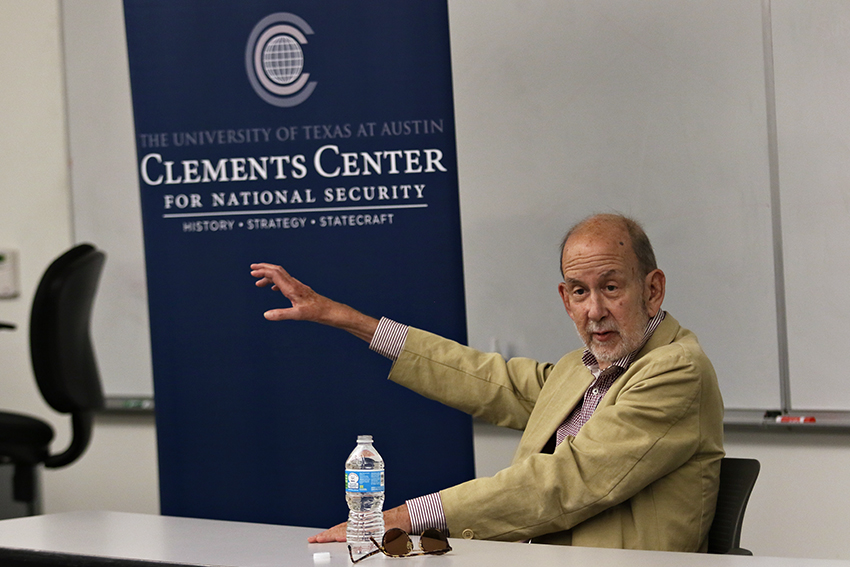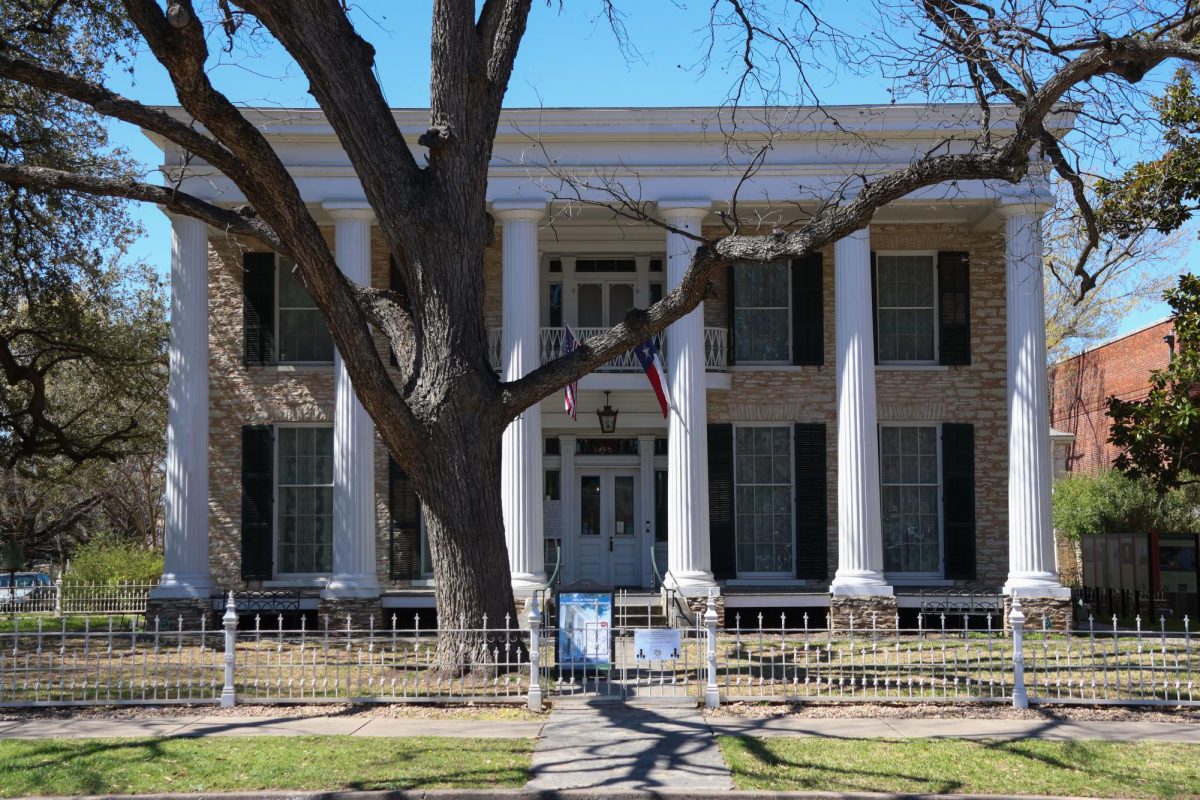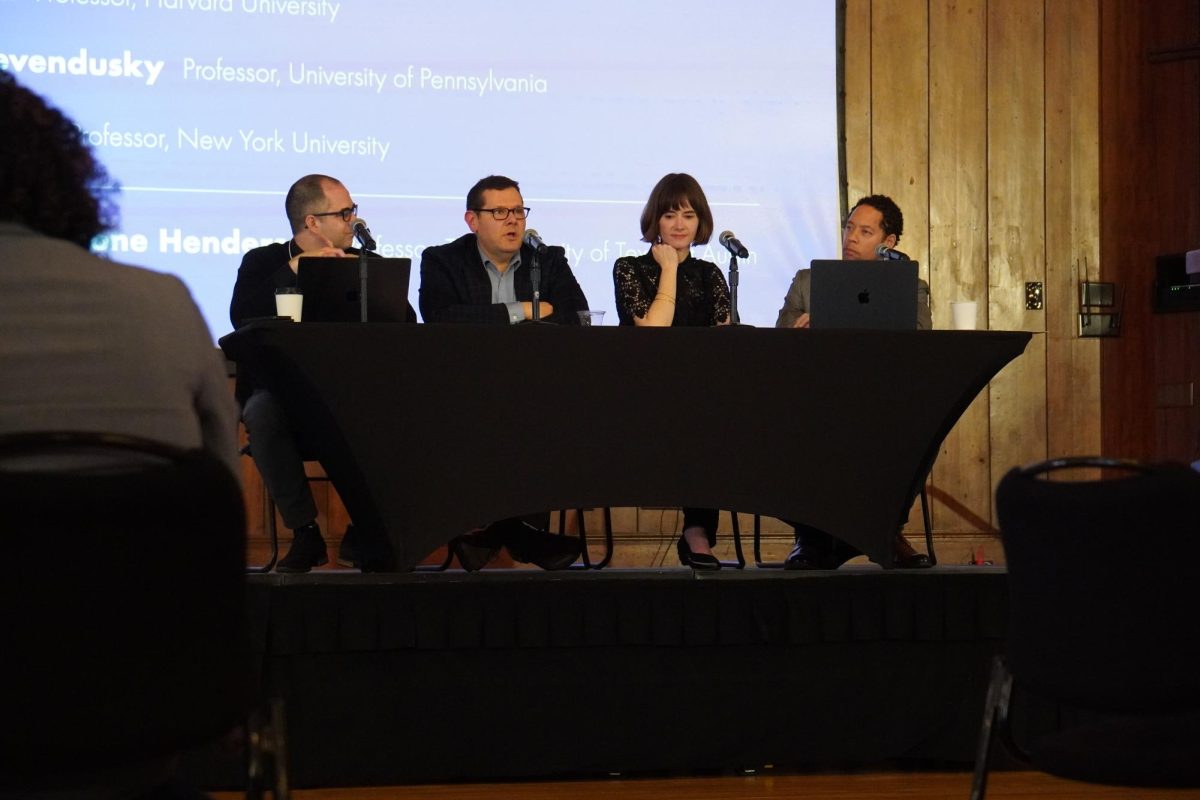Michael Ledeen, author and Freedom Scholar at the Foundation for Defense of Democracies, discussed how fascism grew out of World War I and the impact it had on Europe, especially Italy, as a part of a panel entitled “Fascism: What It Really Was, and Isn’t” on Tuesday night at Sid Richardson Hall.
Ledeen covered many aspects of fascism, including how Mussolini, just like Hitler, rose up after World War I when Italy was vulnerable and damaged.
“The war defined the difference between leaders and followers,” Ledeen said. “Mussolini, a new leader, convinced Italy it needed fascism and that this new form of government would bring out the nation’s creativity.”
Ledeen is a distinguished scholar on Iran, Iraq, terrorism and international security and the author of more than 35 books, including his most recent publication, “The Field of Fight: How We Can Win the Global War Against Radical Islam and Its Allies.”
The event was hosted by the Clements Center for National Security, an institute that seeks to train the next generation of national security leaders, according to their website. The center holds regular panel sessions where prominent speakers and leaders are invited to present on their area of expertise.
“Dr. Ledeen previously served as a consultant to many federal organizations, including the National Security Council,” said Jacqueline Chandler, program manager for the Clements Center. “Because of his experience, I believe he is an expert on fascism. We invited Dr. Ledeen to talk at one of these sessions, and he decided he was going to talk about fascism, a subject he is very familiar with.”
Ledeen holds a Ph.D. in modern European history and philosophy from the University of Wisconsin. He has also taught at the University of Rome, where he was able to study more about Italian fascism.
“I was able to obtain archives on Italian fascism when I was in Rome,” Ledeen said. “Because it was the 1950s and 60s, these documents were fairly new and I was able to write my dissertation on Mussolini and his attempts to develop fascism.”
Law student Julie Wilson, said she decided to attend because she took these events for granted when she was an undergraduate student and wanted to learn more about fascism.
“I want something beyond a textbook definition of fascism,” Wilson said. “In this age of fast changing politics and opinions, it’s important to stay informed."





















